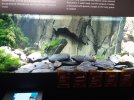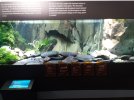Memeboi
Member
- Messages
- 95
Im just wondering about the viability of putting a hillstream loach in a breeding tank, mostly due to the video ''How I bred Reticulated Hillstream Loaches at home'' at the time stamp 6:43 he mentions them being Fry safe, along side video footage of them Not eating a fry Infront of them. So I was then thinking, If Swellia fry are safe, Then Apistogramma Fry probably are too, i'm just spitballing here but I think the idea is viable. If you don't know what Swellia look like here is a picture, they are aufwuchs grazers. I do also wonder if they might interfere with the breeding procces or compete with fry.


